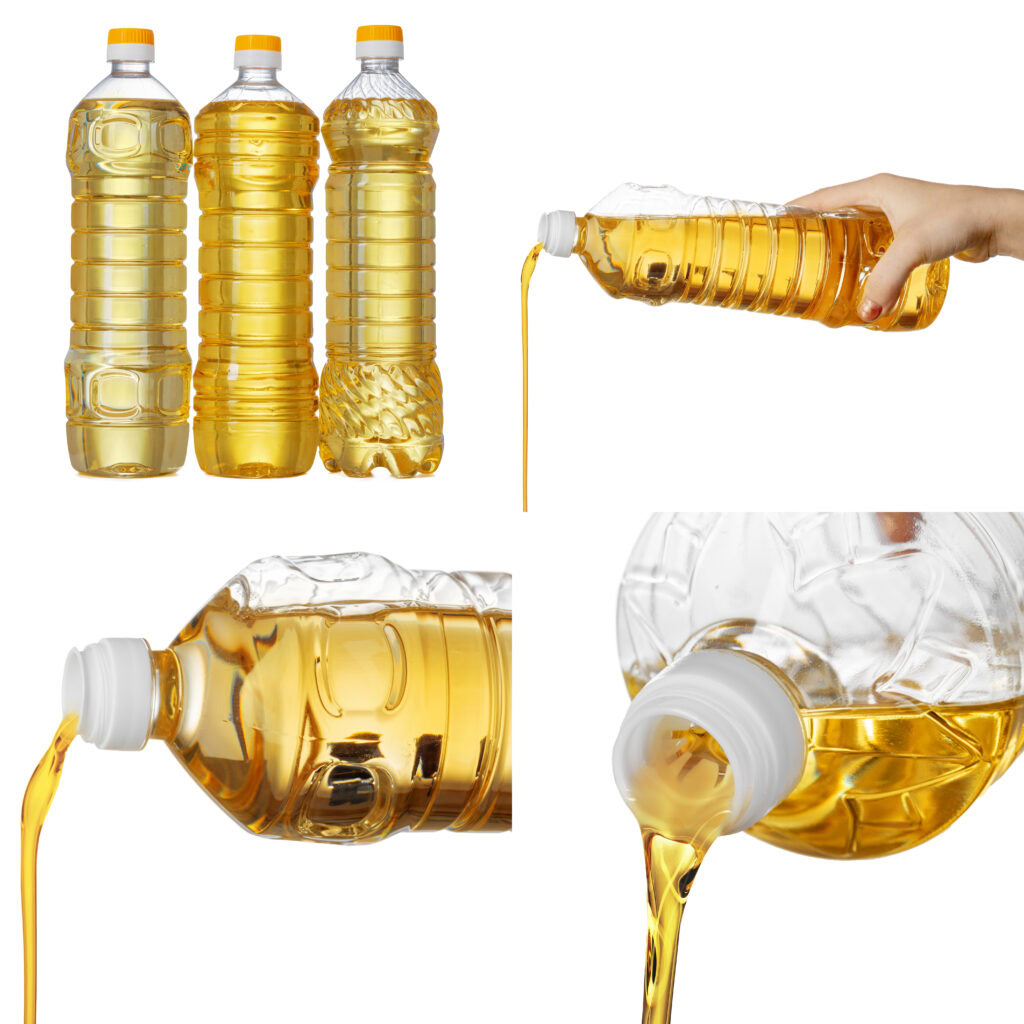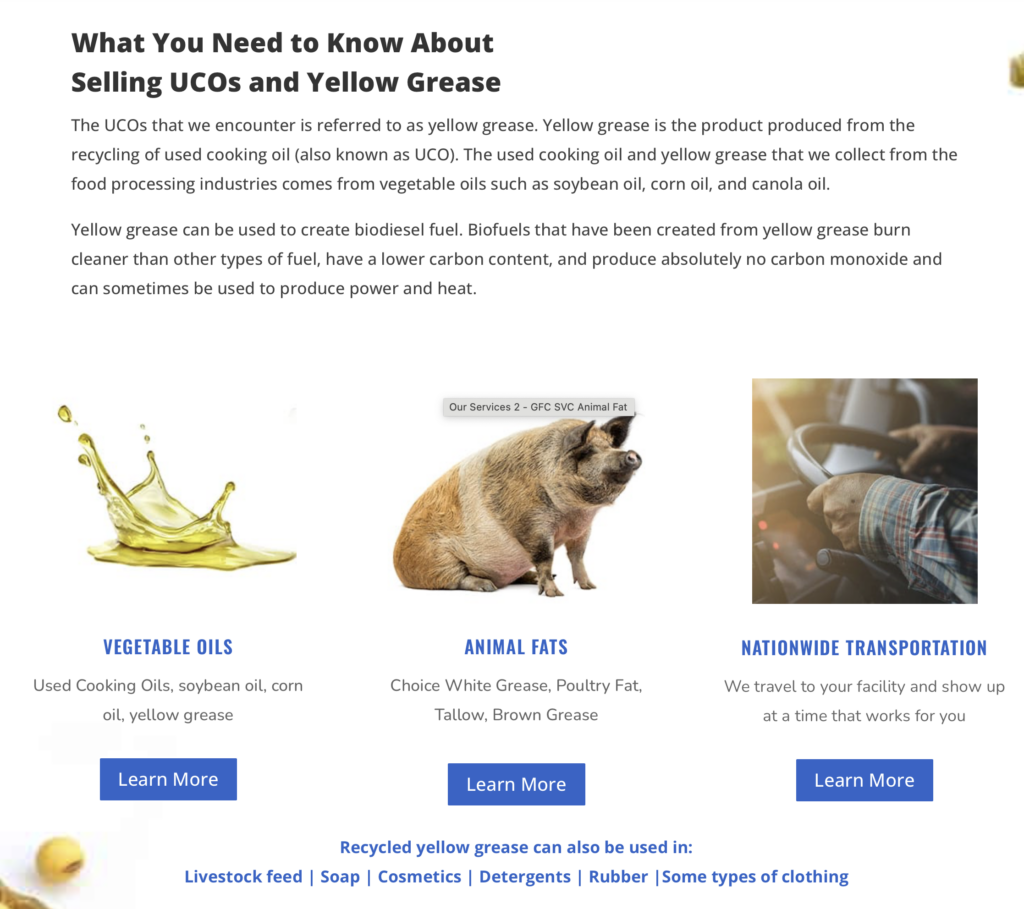Other waste oils, fats, or greases: Biofuel feedstock that is not poultry, tallow (beef), white grease (includes bacon grease), or yellow grease (includes used cooking oil), as used on Form EIA-819, Monthly Report of Biofuels, Fuels from Non-Biogenic Wastes, Fuel Oxygenates, Isooctane, and Isooctene.
White grease: The fat produced during the rendering process, mostly from pork, that is collected and processed to produce biofuel.
Yellow grease: The used cooking oil collected from restaurant grease traps that is collected to produce biofuel.
Other terms that include “grease” in the definition.
Biodiesel (B100): Renewable fuel consisting of mono alkyl esters (long chain fatty acids) that are produced through the conversion of animal fats, vegetable oils, and recycled grease feedstocks (transesterification) to produce biodiesel. Biodiesel is typically blended with petroleum diesel in concentrations of 2% to 20% biodiesel, or B2 to B20.
Lubricants: Substances used to reduce friction between bearing surfaces, or incorporated into other materials used as processing aids in the manufacture of other products, or used as carriers of other materials. Petroleum lubricants may be produced either from distillates or residues. Lubricants include all grades of lubricating oils, from spindle oil to cylinder oil to those used in greases.
Renewable diesel fuel: Renewable fuel consisting of hydrocarbon molecules, produced through the hydrotreating of animal fats, vegetable oils, and recycled grease feedstocks. It is considered a drop-in replacement to petroleum-based diesel fuel (for example, it can be used in diesel engines without modification). Renewable diesel fuel reported on the EIA-819 is produced at dedicated biorefineries or co-processed at petroleum refineries.



